Denys Monastyrskiy: Ukraine interior minister who helped fend off Putin
Denys Monastyrskiy did not easily accept President Zelensky’s offer to head the ministry of internal affairs, a post that thrust him into the spotlight after Russia invaded.
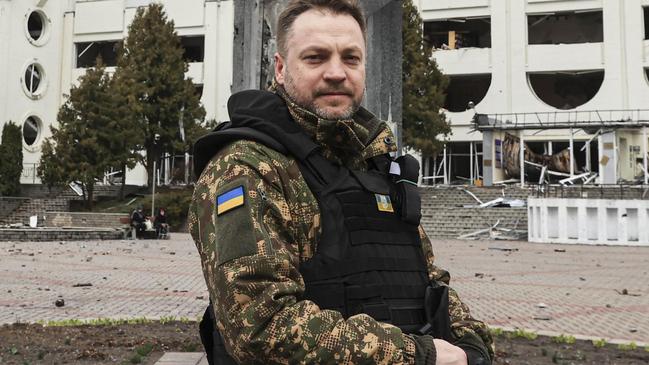
A week after Russia leader Vladimir Putin invaded Ukraine on February 24 last year, Denys Monastyrskiy visited the Byzantine cathedral of St Sophia, which has stood beside the Dnieper river in Kyiv for more than 1000 tempestuous years.
Amid the mosaics, frescoes and golden cupolas, the heads of the Orthodox, Roman Catholic and Protestant churches, as well as the leaders of the Jewish and Muslim communities, took turns to recite prayers for peace.
Wearing a bulletproof vest, he was accompanied by a bodyguard carrying an assault rifle. In one extraordinary vignette Bishop Vitaliy Kryvytskyi, head of the Roman Catholic diocese of Kyiv-Zhytomyr, stepped forward, placed his right hand flat on the chest of Monastyrskiy’s body armour and, with eyes closed, prayed for the Ukrainian interior minister.
Monastyrskiy had been in the post for only seven months. However, he had long been a close associate of Ukraine president Volodymyr Zelensky, and in 2019 had been elected to parliament as a representative of Zelensky’s Servant of the People party, at the same time that Zelensky won the presidency.
Within a month of the invasion of Ukraine by Russia, Monastyrskiy could be found on both the political and military front lines, giving regular updates about missile strikes across the country and issuing grave warnings about the legacy of unexploded ordnance.
“A huge number of shells and mines have been fired at Ukraine, and a large part haven’t exploded. They remain under the rubble and pose a real threat,” he said. “It will take years, not months, to defuse them.”
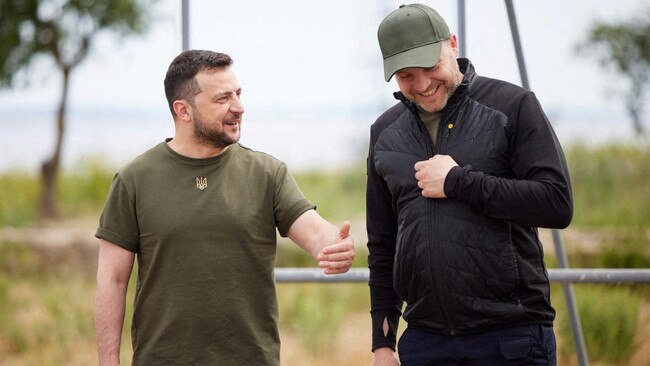
He also described how Russian troops were targeting the homes of Ukrainian government employees, hiding explosive booby traps in their vehicles, houses and even inside their washing machines.
“Wherever the occupiers stayed overnight, they would set up trip wires, both at the doorstep and by the fences,” he told Ukrainian television.
“Our people are now also finding explosives in houses and apartments where Ukrainian police officers, rescuers and military servicemen live.”
Two months ago, when investigators uncovered 63 bodies bearing signs of torture in the newly liberated southern Kherson region, Monastyrskiy said that this was only the beginning of his mission to expose Russian brutality during the war.
“We must understand that the search has only just started – so many more dungeons and burial places will be uncovered,” he said.
Denys Anatoliiovych Monastyrskiy was born in Khmelnytsky, in the west of Ukraine, in 1980 and studied law at the city’s University of Management and Law. He continued his studies at the Koretsky Institute of State and Law, part of the National Academy of Sciences of Ukraine, where he completed his PhD.
By 2007 he was a lawyer at Hillmont Partners, an Anglo-Ukrainian legal firm that represented Kvartal 95, Zelensky’s TV production company. A couple of years later he joined the Ukrainian offices of Global Ties KC, an American law firm. He was, meanwhile, building a public profile as the co-founder of a youth cultural association.
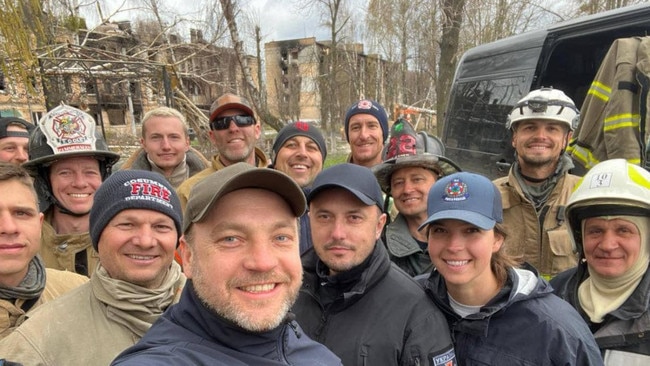
When Zelensky, a stand-up comedian and actor with little experience of politics, stood for president in 2019, Monastyrskiy was part of his team working on law enforcement reforms. However, after the election Zelensky retained as interior minister Arsen Avakov, who had been in office since 2014 but was viewed with suspicion by some, with criticism surrounding his links to Ukrainian nationalist groups and to corruption scandals.
Monastyrskiy was instead tasked with taking charge of the law enforcement committee. Avakov, who was blamed for blocking the president’s attempts to tackle corruption, resigned in July 2021 amid rumours that Zelensky was planning to dismiss him. The Ukrainian president nominated Monastyrskiy to replace him.
“When I was offered to head the ministry of internal affairs, this proposal was made by the president personally,” Monastyrskiy confirmed in an interview.
Yet he said his decision to accept the post had not been easy.
“I can say that I made the most difficult decision in my life, to answer yes to the president’s proposal,” he said, stressing that he was making a sacrifice “as a person and as a politician”. He also had to contend with allegations of nepotism because his wife, Zhanna Monastyrska, is a lawyer at the State Investigation Bureau. She survives him with their two sons.
In his early days in office Monastyrskiy’s time was occupied by domestic matters similar to those facing his European counterparts, including tackling the growing black market in counterfeit Covid-19 vaccination certificates.
Towards the end of 2021, as neighbouring Belarus sent thousands of migrants west to the Polish border, he ordered the deployment of 8500 troops and police officers to his country’s northern border to deter migrants from entering.
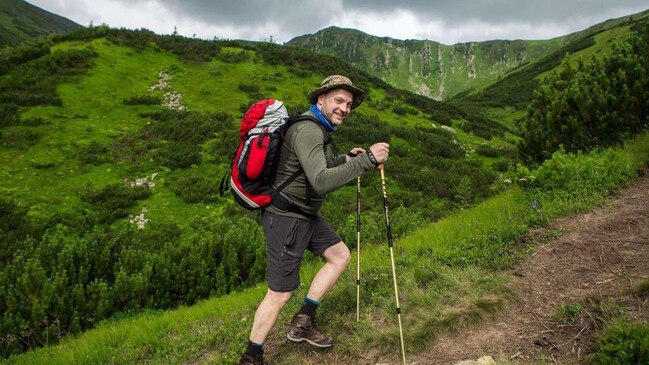
Soon his attention was focused on preparing for the Russian attack, though like Zelensky he played down its imminence.
“Keep calm. Don’t panic. This is not 2014,” he said in a video address 10 days before the invasion, referring to when Russia annexed Crimea and pro-Russian separatists began claiming control of eastern Ukraine.
“Ukraine has become stronger and better organised.”
Two days later, dressed in combat fatigues, he was visiting troops in the occupied eastern Donetsk region when the area came under a “surprise mortar barrage” and he was forced to scramble for cover along with his entourage and reporters.
Monastyrskiy was remembered by one colleague as “a very bright, smiley, friendly, patriotic person”.
He was killed along with Yevhen Yenin, his deputy, and Yurii Lubkovich, the state secretary, when the helicopter they were travelling in – which was headed for a war “hot spot”, according to the deputy head of Ukraine’s presidential office – crashed close to a nursery in the Brovary suburb in the east of Kyiv. There were 14 casualties, including one child.
His death made him the most senior Ukrainian official to have died since the start of the war.
Denys Monastyrskiy, interior minister of Ukraine, was born on June 12, 1980. He was killed in a helicopter crash on January 18, 2023, aged 42.
The Times


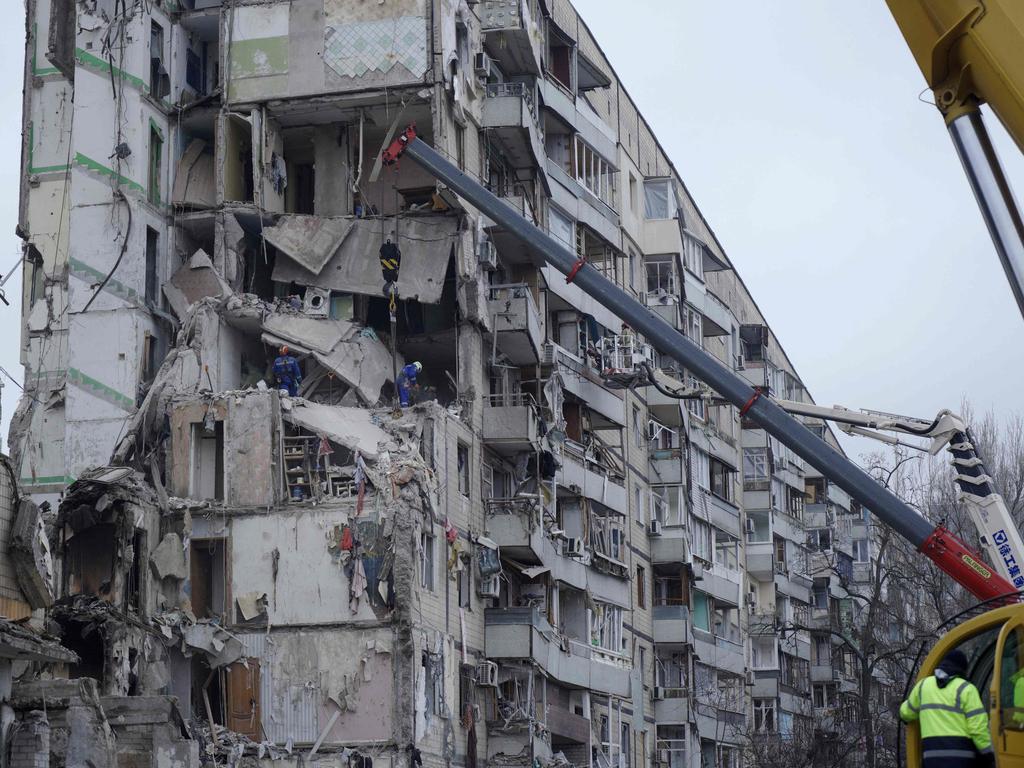
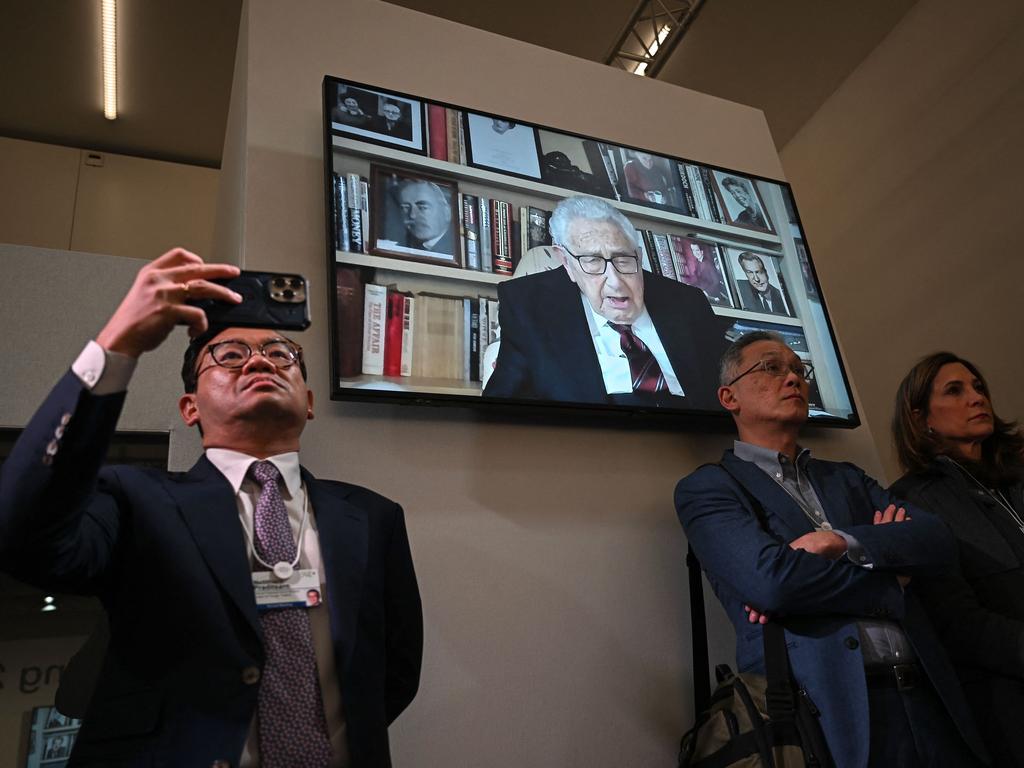


To join the conversation, please log in. Don't have an account? Register
Join the conversation, you are commenting as Logout